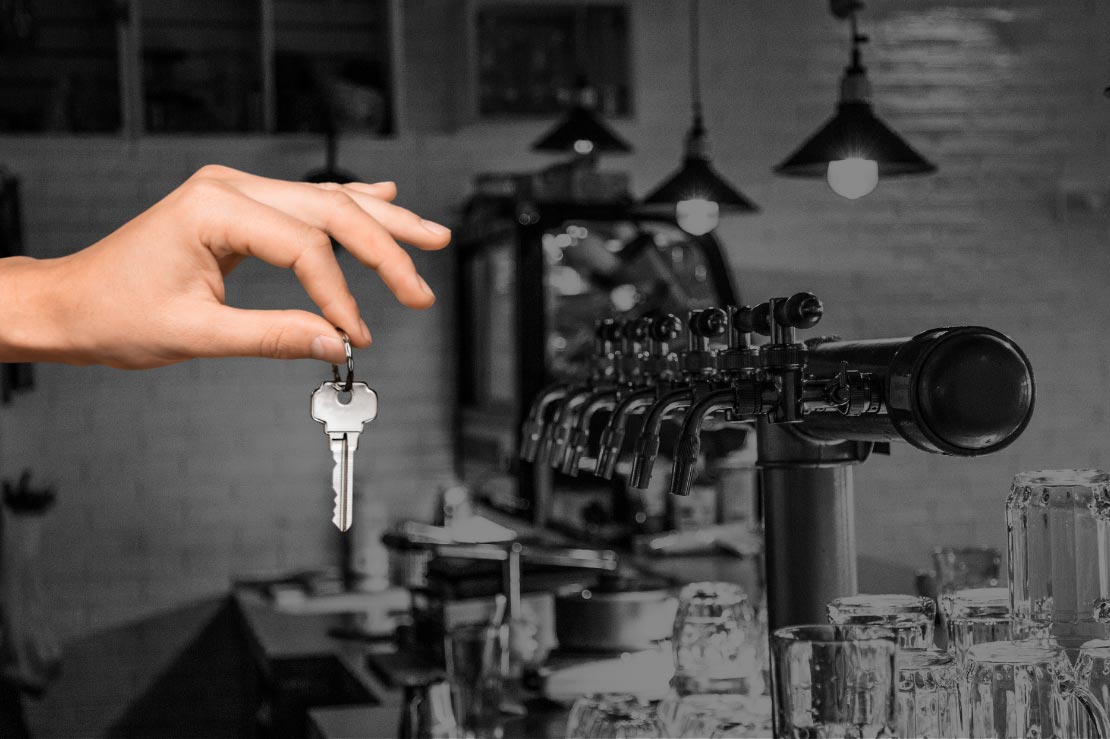Most F&B outlets are run out of rented properties, especially in commercial areas and the cities, where rental can vary depending on the location and type of properties you are renting.
Generally, there are a few key items that you have to watch out for when considering a business in F&B. With rental being the biggest item on your list of investments, it is only wise to make thorough plans and equip yourself with some basic legal knowledge.
With an array of cafes, restaurants, pubs and clubs mushrooming in the Klang Valley due to the higher spending power of millennials and their interests in food and drinks, opening and operating an F&B outlet may seem to be a risk worth taking with potentially handsome returns.
However, more often than not, F&B outlets are usually rental premises at strategic locations, and tenancy of commercial properties is far more complicated than one may think and differs vastly from tenancy of residential properties.
Security Deposit
Prepare 3 – 6 months rental for deposit
It is the norm in Klang Valley for landlords to require three to six months rental deposit in addition to one month advance rental payment and another half to one month rental as utilities deposit before any keys to the premises would be handed over to the tenant. The reason for this is because some landlords depend on the monthly rental for their mortgage repayment of these premises.
Any late payment of rental or default would greatly jeopardize their repayment and risk themselves being caught in a financial recovery exercise by their financiers.
Furthermore, the three to six months rental deposits may also serve as cushion to some of the landlords’ financial strain for certain inadvertent events, for example eviction of the tenants for various reasons, and making good of the premises after eviction or at the end of the rental period.
However, as tenants, you are always advised to take detailed photographs of the exterior and interior of the premises when you are first handed the keys. This is to ensure that you and the landlord take note of any pre-existing conditions of the property before rental commences, that you have references to restore the premises back to its original or to an agreed upon state at the end of the tenancy, and have your rental and/or renovation deposit fully refunded back to you.
Rental
Then the actual rental money, but also some freebies.
With new commercial buildings coming up like cherry blossoms in spring season, some of the landlords for these buildings may be offering three to six months rental free period to capture tenants. These are deals worth exploring as the rental free period may serve as a cost saving element with the normal estimated renovation period of one to three months before a restaurant or bistro is delivered and operational.
Online websites like Property Guru and iProperty are good tools as these websites offer the latest rental prices for similar properties within the vicinity of your targeted area before you commence any negotiation with the landlord. Other factors in negotiating for better rental includes location of the premises, age, how well maintained it is, accessibility by the public, the availability of car parks for staff and potential customers, etc.
Early Termination
While no one can foresee how long a business would last, it is paramount that an entrepreneur also prepares himself/herself for the worst case scenario. Hence, it is always wise to factor in the duration of the business premises’ tenancy before entering into any tenancy agreement. Some landlords in the affluent areas such as Bukit Bintang, Damansara Heights, Bandar Utama and Bangsar areas tend to demand a mandatory tenancy term of two years with an additional two years as option upon renewal. Early termination of the tenancy may result in having to cough up the rental for the remaining period of the tenancy term.
Vice versa, prospective tenants should always look out for terms in the tenancy agreement that stipulate any early termination of the tenancy unilaterally by the landlords, for whatever reason, which would automatically entitle you to damages as a result.
Other Fine Print
Most people may have the wrong assumption that tenancy for commercial premises is similar to that for residential premises, especially when it comes to premises located within a shopping mall. My advice is, don’t skimp on legal costs to appoint a solicitor to read the fine print, as failure to do so may come with costly consequences.
For instance, premises located within Berjaya Times Square and Pavilion Kuala Lumpur may require you to be open for business all year round except for the very few days of public holidays. Failure to do so may incur hefty fines/penalties for each and every day that your business is closed. Others may find terms such as compulsory renovation of the rented premises in every 3 to 5 years (factor to be taken into consideration when it comes to tenancy renewal), in order for the mall to continue to remain fresh and relevant to the ever changing customer expectations and trends. These are all additional hidden costs that some may overlook.
Be Smart
The conclusion is be smart when you are dealing with commercial tenancy. Always compare prices and terms of the prospective tenancy for several units within the same vicinity before deciding on one. Engage a solicitor, when necessary, to negotiate with the prospective landlords for better deals on your behalf should you find it difficult to do so via the estate agents.
You can get in touch with Bernard Liew of Messrs Kin Jong & Co., at kinjong.co@gmail.com
This article was first published in Thirst Magazine Issue 3 in 2018.
